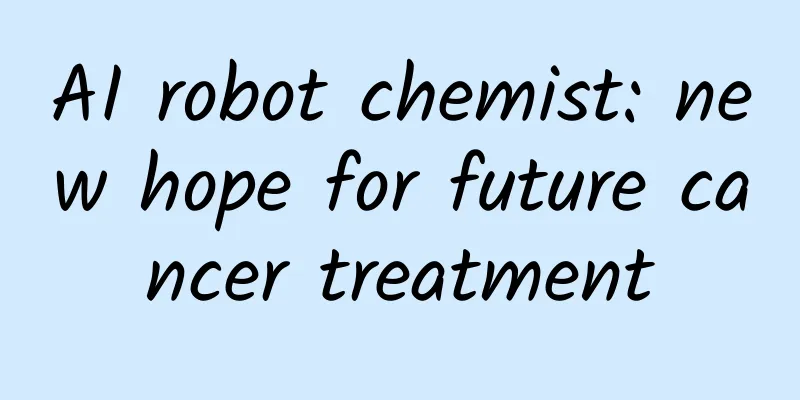AI robot chemist: new hope for future cancer treatment

|
Have you ever imagined that the explorer of future chemistry might be an artificial intelligence robot? This is not just a concept in science fiction, but a fact that is quietly happening around us. Artificial intelligence (AI) is reshaping the face of cancer treatment, making treatment plans more precise and personalized. Now, let us uncover the amazing applications of AI in cancer treatment! Application of AI in cancer treatment 1. Personalized treatment plans: AI can deeply analyze patients' genomic data, imaging data and clinical information to tailor treatment plans for each patient. Take the "DeepPT" model as an example. It was jointly developed by the Australian National University, the National Cancer Institute of the United States and Pangea Biomed Pharmaceuticals. It can assist doctors in selecting the most appropriate treatment by predicting the patient's messenger RNA (mRNA) profile. 2. Early diagnosis and detection: AI plays a vital role in the early diagnosis and detection of cancer. AI systems can assist doctors in identifying tiny lesions in medical images, greatly improving the accuracy of early diagnosis. 3. Pathological diagnosis: In the field of pathological diagnosis, AI technology has also shown great potential. For example, MuMo, a multimodal tumor treatment response prediction model developed by Professor Dong Bin's team at Peking University and Professor Shen Lin's team at Peking University Cancer Hospital, provides a more accurate treatment plan for HER2-positive gastric cancer patients by comprehensively analyzing multiple information such as imaging images and pathological images. How AI can help identify neoantigens In the field of cancer immunotherapy, new antigens are specific peptide chains produced by tumor cells through non-synonymous mutations, which can activate the immune response of T cells. AI technology plays a key role in this process, helping scientists identify these new antigens and develop more effective immunotherapy. Challenges of AI in Cancer Treatment Although AI has shown great potential in cancer treatment, it also faces some challenges. AI requires a large amount of high-quality data for training, and the acquisition and processing of this data is both time-consuming and resource-intensive. At the same time, improving the interpretability and trustworthiness of AI models is also a focus of current research. Conclusion The application of AI in cancer treatment is making continuous progress, bringing more hope to patients. With the continuous advancement of technology, we have reason to believe that AI will become an important tool for cancer treatment in the future. Let us look forward to AI creating more miracles in the medical field and bringing more good news to human health! Although AI technology is powerful, it still needs the guidance and supervision of us humans to ensure that its development direction is in line with ethics and human well-being. |
>>: Walking like this consumes 20% to 60% more energy!
Recommend
Can I cover up the leg pain during confinement?
Leg pain during the confinement period is usually...
What should a new driver do if he is nervous on the road? How should a new driver judge the distance between cars on the road?
After going through so much hardship to get a dri...
Major changes in breasts during menstruation
I have been menstruating for 2 years, but there i...
What does false labor feel like in pregnant women?
Pregnant women should have known about uterine co...
4 bad habits in the kitchen may cause family members to suffer from cancer!
Planning丨Yinuo Editor: Yinuo Visual丨Zhang Shan Re...
The harm of early sexual life after abortion
Nowadays, many women become pregnant because they...
Don't underestimate high blood pressure. If it is not well controlled, even the thickest arteries of the heart will be torn.
▌The popular science theme of this article comes ...
Sneezing is very harmful! How to sneeze is also a science!
It’s winter now, and it’s the season for colds, f...
How to treat moderate cervical erosion?
Many women do not pay enough attention to their o...
How to diagnose placenta previa? Here are eight ways to teach you
Placenta previa is a problem that occurs after 28...
What to do if menopausal bleeding does not stop
Women's menopause usually occurs between the ...
Can women soak their feet during menstruation?
If you are tired after a day's work, would yo...
“It’s worth a fortune to be thin in old age”? Not necessarily! Being thin in old age does not mean you are really healthy
There is an old Chinese saying: "A slim body...
Causes of lumps during menstruation
We all know that every girl will have menstruatio...
Why is it so tight?
Sex is a very important aspect in the life of a c...









